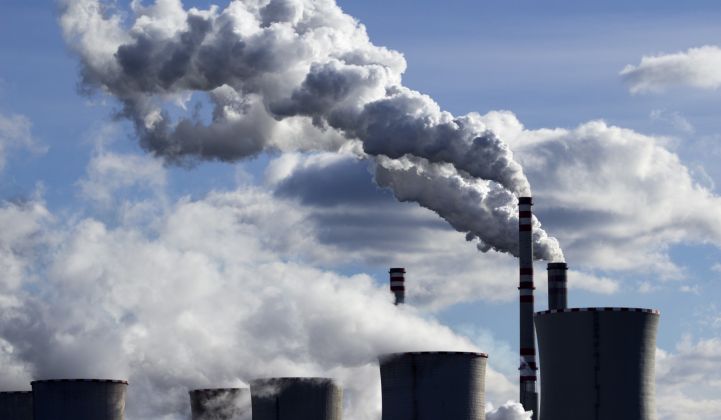A newly launched group supporting a carbon tax has monetary backing from power players including Exelon Corp., First Solar and the American Wind Energy Association (AWEA).
The bipartisan Americans for Carbon Dividends, which follows on an unsuccessful attempt last year from Republicans George Shultz and James Baker to push a price on carbon, would place a $40 per ton tax on carbon dioxide that would increase over time. Some money would be returned to the public through a carbon dividend.
Supporters of the policy, which in addition to companies like Exelon include the group’s founder and former Republican Senator Trent Lott and former Federal Reserve chair Janet Yellen, say it’s a climate policy that makes economic sense.
“A carbon dividends policy that returns proceeds to consumers will unleash innovation and investment in new and existing technologies and put us on course to reduce emissions in the fastest and most economical way possible, while also protecting American jobs and the security of our energy supply,” said Chris Crane, president and CEO of Exelon, in a statement.
Exelon, which owns mostly nuclear but also some natural gas and other clean generation, said supporting the effort was part of its long-held belief in fighting climate change. The company confirmed to Greentech Media that it has contributed $1 million to the initiative.
Crane has repeatedly called for market reform to compensate nuclear power plants for their reliable, low-carbon power. He recently called for some type of federal intervention, but stopped short of backing a leaked proposal from the Trump administration.
AWEA, which is also offering financial support according to Americans for Carbon Dividends, said that is has long-supported a carbon price.
“We see this as a valuable opportunity to join a bi-partisan conversation on carbon policy,” said AWEA’s CEO, Tom Kiernan. “Baker-Shultz is one of several carbon pricing plans we’re analyzing.”
Dick Keil, a spokesperson with Americans for Carbon Dividends, confirmed that the group has already raised a seven-figure budget, with a goal of raising $10 million in the short term.
“We haven’t even begun formal fundraising yet, but we anticipate significant financial support from the business community,” he said. “We’re confident we’ll get to that number.”
The initiative’s form of a carbon tax seems to have a little something for everyone.
While it offers environmental groups the emissions reductions they’ve lobbied for, the public may like its disbursement of a quarterly dividend check to households. The group says that would amount to about $2,000 for a family of four in the first year.
The Wall Street Journal reported that some fossil fuel companies are also considering financially supporting the effort and that the group’s legislation would protect companies from lawsuits holding them responsible for climate change. Fossil fuel companies such as ExxonMobil, Shell and BP have supported a carbon tax in the past.
At the same time, the please-everyone mentality has already drawn ire — indicating a carbon tax remains a tough sell in the current political climate.
Some environmentalists stand opposed to letting fossil fuel companies off the hook for increasingly drastic climate change. And Republicans, including several in the Trump administration, have indicated a carbon tax is not a priority.
Others, though, are willing to go to bat for the idea.
“You don’t want to give money back to consumers and make the environment cleaner?” said Mark McKinnon, a Republican advising the campaign said of his party members who oppose the idea. “I’ll have that debate.”
The group said it will sit out action in this year’s midterms, where it’s unlikely they’ll be able to sway a Republican-heavy Congress, but it plans to jump into the fray with legislation post-2020. Studies have shown that even if humans begin to drastically reduce emissions, temperatures will likely still rise by about 2 degrees Celsius by the end of the century.
Americans for Carbon Dividends was announced shortly after the nonpartisan, nonprofit Citizens' Climate Lobby met with over 500 offices on Capitol Hill to push for its carbon fee and dividend policy. Craig Preston, a member of the group's “conservative caucus,” said lawmakers are moving much slower than he'd like, "but they are moving."
"We're building coalitions to in a sense make it safe for them to come to the middle on this issue," he added. "It's a global issue, it's an American issue, of making the climate safe for us all."
Learn more about the Citizens' Climate Lobby in the latest episode of GTM's new podcast, Political Climate.




